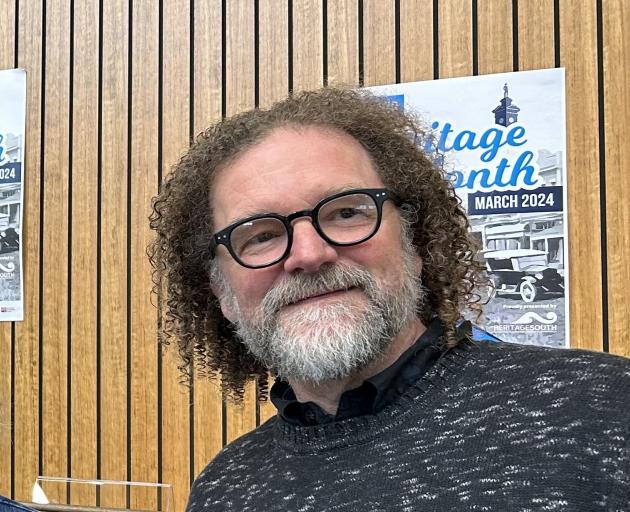Entertainment
Council Decision on Arts Funding Sparks Controversy in Gore

The future of arts and heritage funding in Gore has come under scrutiny following a recent decision by the Gore District Council. Last month, the council voted to permit the incoming council to explore a potential reduction in the level of service for arts and heritage initiatives. This move has drawn criticism from local stakeholders, including prominent community advocate Mr. Geddes, who argues it undermines the significant investments made by the community over the past decades.
Mr. Geddes highlighted that the arts and heritage sector encompasses a variety of organizations, committees, and trusts, each contributing to the overall cultural landscape. Key entities involved include the Eastern Southland Gallery, the Gore District Historical Society, and the Hokonui Moonshine Museum Charitable Trust, among others. Since 1998, the community has raised a remarkable $10.1 million for these initiatives, with the Gore District Council contributing $1.6 million. The remainder, amounting to $8.6 million, has come from local trusts, businesses, and individual donors focused on capital projects.
In 2022-23, the council formalized its ownership of several key buildings, including the Eastern Southland Gallery and the Hokonui Moonshine Museum, through a memorandum of understanding. While the council now owns the physical assets, the stewardship of collections and heritage documents remains with the respective organizations.
Mr. Geddes pointed out that the primary costs associated with the arts and heritage department stem from asset depreciation and operational overheads, estimated to be around $400,000 annually. He questioned the fairness of potentially retracting funding support after such substantial community investment.
“We’ve got this extraordinary heritage which is all here and it’s complete, by virtue of the community developing it,” Mr. Geddes stated. He emphasized that the council’s previous initiatives were instrumental in building this cultural foundation. A reduction in services, he warned, could alienate the hundreds of investors who have supported these projects over the years.
“If they perceive that it’s not a stable foundation, but more especially if their input isn’t valued by the community, then we’ll go somewhere else,” he added.
Despite the uncertainty, fundraising efforts continue, with Mr. Geddes actively seeking the final $400,000 needed for the concluding phase of the Arts and Heritage project, which had been delayed due to the COVID-19 pandemic. He expressed the challenges faced during this period, stating, “It was absolutely devastating, crippling and horrible.” Support from local organizations such as the Mataura Licensing Trust and Community Trust South proved essential in navigating these difficulties.
Gore is recognized for its rich arts and heritage scene, which has historically attracted numerous donors and patrons. Mr. Geddes underscored the importance of maintaining a vibrant cultural environment for the community. He stated his commitment to ensuring that the lights stay on for these vital initiatives, regardless of the financial challenges posed by depreciation.
As discussions about funding and service levels continue, the future of arts and heritage in Gore hangs in the balance, with stakeholders keenly aware of the impact these decisions will have on the community and its cultural legacy.
-

 World6 days ago
World6 days agoPrivate Funeral Held for Dean Field and His Three Children
-

 Top Stories1 week ago
Top Stories1 week agoFuneral Planned for Field Siblings After Tragic House Fire
-

 Sports3 months ago
Sports3 months agoNetball New Zealand Stands Down Dame Noeline Taurua for Series
-

 Entertainment3 months ago
Entertainment3 months agoTributes Pour In for Lachlan Rofe, Reality Star, Dead at 47
-

 Entertainment2 months ago
Entertainment2 months agoNew ‘Maverick’ Chaser Joins Beat the Chasers Season Finale
-

 Sports3 months ago
Sports3 months agoSilver Ferns Legend Laura Langman Criticizes Team’s Attitude
-

 Sports4 weeks ago
Sports4 weeks agoEli Katoa Rushed to Hospital After Sideline Incident During Match
-

 Politics2 months ago
Politics2 months agoNetball NZ Calls for Respect Amid Dame Taurua’s Standoff
-

 World2 weeks ago
World2 weeks agoInvestigation Underway in Tragic Sanson House Fire Involving Family
-

 Entertainment3 months ago
Entertainment3 months agoKhloe Kardashian Embraces Innovative Stem Cell Therapy in Mexico
-

 Sports4 weeks ago
Sports4 weeks agoJamie Melham Triumphs Over Husband Ben in Melbourne Cup Victory
-

 World4 months ago
World4 months agoPolice Arrest Multiple Individuals During Funeral for Zain Taikato-Fox













